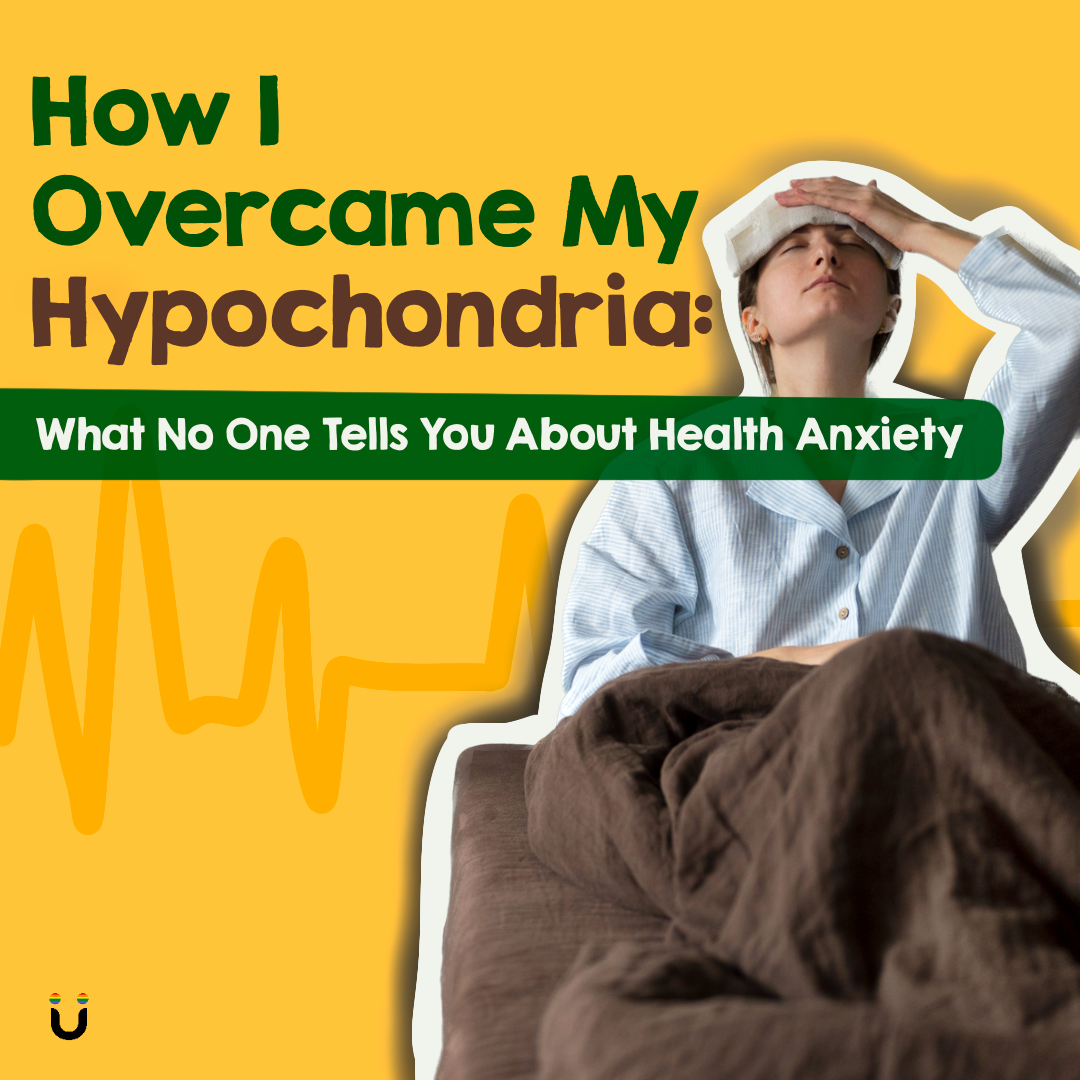Somewhere around 3 a.m; I woke up covered in sweat, shivering, and with my heart pounding louder than it has ever done before. I thought this was it - this was how it all ends - so I did the only logical thing a person could do at that moment.
I Googled my symptoms.
Google diagnosed me with the names of diseases that had Greek origins, and spellings no one (except doctors, of course) could pronounce. I frantically remember waking my dad up, “Dad, I think I am having a stroke”. He looked at me questioningly, and just told me to wait it out and watch. But how could I ?
If I had diagnosed myself with a stroke, I simply MUST be having one!
Does any of this sound familiar to you? If it does, you might be experiencing what psychologists for years have endearingly called hypochondriasis. Yet another Greek sounding name? Well, let me simplify it for you. Hypochondriasis literally means “ under the breastbone”. Yeah, it makes no sense to me either.
We’ve come a long way since then, so now we call it ‘Health Anxiety’.
What is health anxiety?
Health anxiety is an excessive worry that you might be falling ill or have a serious underlying medical condition despite nothing coming up in scans, blood works and reports.
In a way, the purpose of illness and anxiety is to alert you, kind of like tiny, little demons begging for your attention.
This reminds me of the story of the young boy screaming wolf, until one day, there were actual wolves and he couldn’t do anything about it. I know I am that young boy, and yet I continue to do it. Because my pain is real, and so is yours.
There are thousands of research pieces that focus on telling people how to “manage” their symptoms, but rarely any research focuses on asking people ‘what it is like being acutely aware of the smallest change in their body’. This is not what this piece of writing is about, it’s about providing a space where you are allowed to have your worries, stress, and apprehensions.
I know and I understand what it is like sitting in the waiting room; confused and feeling alone in the experience: experiencing and going through every sensation, calculating ways that you can convince yourself, others, and the healthcare system that something is truly not right. The eventual disappointment mixed with relief when nothing shows up! Couple that with running to different doctors, getting multiple scans done,and trying to decipher a myriad of reports. But in the end, only one question pops up, “What is wrong with me?”.
Absolutely nothing!
Experiencing bodily symptoms is normal, but what does not work is using the internet as an official diagnostic source. In fancier terms, it is called reassurance seeking behaviour; to put it simply, you reach out to feel safe.
The behaviours that others find excessive and annoying are at the root; safety behaviours. The irony of these “safety behaviours” is that it just does not work. Safety behaviours are effective for short term management, but harmful in the long run.
What are we really looking for when we jump into the health anxiety spiral? Confirmation that something serious exists? Confirmation of our own thoughts? Or just a simple angst at our pain being discounted?
For me, I think I am looking for permanence; a guarantee that I am here, I am going to take up space and my body won’t actively fight me for it. Oftentimes, I look inward and ask, “What is the purpose of this permanence?” My life has been a constant chase for this permanence, only for me to zone out in the present, to watch that very presence go by me while I sit waiting for my turn to get my blood tests done (the fifth time this month)!
Another question I have, and dear reader, I would encourage you to reflect on this too. What is this need for permanence stopping me from doing? Along with living a value-guided life? How much worth can it even hold in my life if it stops me from meeting my loved ones?
One thing I learned, with health, is that I can only strive for wellness but not permanence. Along with wellness, I choose to actively engage in activities that bring me joy, I allow my anxiety to exist, but it no longer directs my behaviour.
And I have a long, long journey ahead of me.
Meet the Author

Varnaya likes writing because then she can pretend to be a speaker! Sci-fi and coffee are the two things that can sustain her.She uses narrative therapy in her therapeutic approach, and believes that people are an expert in their own lives. She wants people to know that they have the power to choose their relationships and nurture them. She loves writing about the oddities of our world, the characters she visits in the books/movies and the systems that influence us. Happy reading, may the force be with you!

